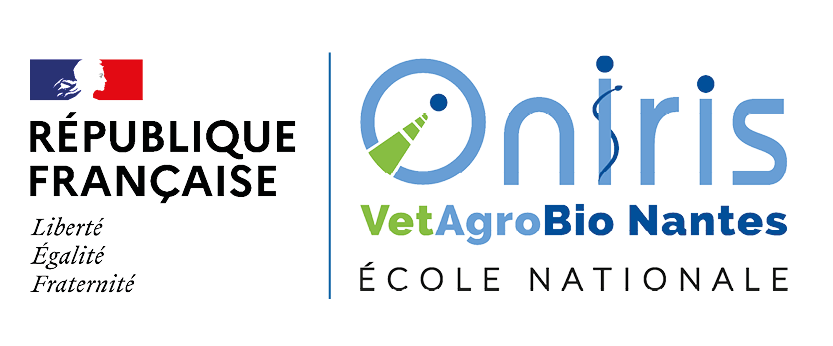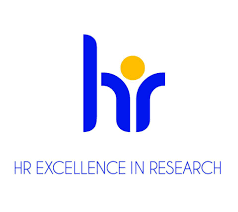HRS4R Certification
Since August 2023, Oniris VetAgroBio has held the HRS4R (Human Resources Strategy for researchers) label.
Granted by the European Commission, this label helps to improve recruitment practices and working conditions for researchers in order to attract the best researchers, encourage young people to pursue scientific careers and make the European Research Area more attractive. In 2005, the European Commission published the "European Charter for Researchers and Code of Conduct for the Recruitment of Researchers".
The aim is to guide higher education and research establishments in implementing the 40 principles that make up these texts, organized around four main themes:
- ethical principles and professional responsibilities
- recruitment, career development and mobility
- working and safety conditions, professional environment
- training and continuing professional development.
Context and challenges
HRS4R accreditation is essential for research establishments. It enables them to meet the requirements of European research programs, and to attract European funding.
For researchers, it means improving research conditions, reinforcing respect for ethical principles and professional responsibilities, reaffirming a commitment to working and safety conditions and the professional environment, and proposing a training policy.
The labeling process is a long-term process. The establishment ensures that the proposed action plan is implemented and regularly reviewed.
The term "researcher" is commonly used by the European Commission to refer to all scientists, including doctoral students, professors-researchers, statutory and contract research staff, etc.
The EU framework for careers in science specifies four profiles of researchers :
- R1: first-level researcher (up to doctorate level); e.g. contract doctoral student; IATOS (engineering, administrative, technical, social, health and library staff) (Technical and administrative staff) civil servants or contract staff with a diploma to start a doctorate.
- R2: recognised researcher (doctorate or equivalent, not totally independent); e.g. post-docs, lecturers, IATOS civil servants or contract staff who have been involved in research for at least 4 years and have a doctorate.
- R3: senior researcher (independent researcher - project leader, scientific coordinator); e.g. lecturers
- R4: Leading Researcher (a researcher who leads its area of research), e.g. a professoror or a researcher holding an Accreditation to Supervise Research (Habilitation à Diriger des Recherches)
European human resources strategy for researchers HRS4R
https://euraxess.ec.europa.eu/jobs/hrs4r
European Charter for Researchers and Code of Conduct for the Recruitment of Researchers
https://euraxess.ec.europa.eu/jobs/charter
HRS4R 40 PRINCIPLES
European Charter for Researchers: 4 axes and 40 principles
4 main axes :
- Ethical principles and professional responsibilities
- Recruitment, career development, mobility
- Working and safety conditions, professional environment
- Formation
1. Freedom of research
2. Ethical principles
3. Professional liability
4. Professional attitude
5. Contractual and legal obligations
6. Empowerment
7. Best practices in research
8. Dissemination and use of results
9. Public engagement
10. No-discrimination
11. Evaluation systems
12. Recruitment (principles)
13. Recruitment (procedures)
14. Selection
15. Transparency
16. Judging merit
17. Variations in chronological CV order
18. Recognition of mobility experience
19. Recognition of qualifications
20. Seniority
21. Postdoctoral appointments
22. Recognition of the profession
23. Research environment
24. Working conditions
25. Stability and permanence of employment
26. Financing and salaries
27. Gender balance
28. Professional development
29. The value of mobility
30. Access to career guidance
31. Intellectual property rights
32. Co-authorship
33. Teaching
34. Complaints/appeals
35. Participation in decision-making bodies
36. Relations with supervisors
37. Supervision and management functions
38. Ongoing professional development
39. Access to research training and continuous development
40. Supervision
Action plan
Oniris VetAgroBio is fully committed to promoting excellence in its research and has many assets to offer in terms of welcoming and supporting researchers.
In terms of ethics, the school has put in place a resolutely active policy to ensure that the obligations of neutrality, obedience and integrity are respected, and to prohibit plagiarism, discrimination, cheating and conflicts of interest. Oniris regularly updates its gender equality plan. In addition, the school works with two ethics committees for veterinary clinical and epidemiological research and for the review of animal research applications.
Oniris VetAgroBio offers excellent working conditions, benefits from high-quality technical equipment and a wide network of higher education and research institutions, in particular through strong partnerships with the major national organisations INRAE, INSERM and CNRS. The recruitment and selection of candidates is governed by rules guaranteeing non-discrimination and equal treatment. A specific charter provides a coherent framework for recruiting, formalising contracts and remunerating contract staff.
In terms of mobility,Oniris VetAgroBio allows teaching staff to spend 6 or 12 months in external research laboratories as visiting researchers. Doctoral students are also strongly encouraged to spend at least a few months abroad during their PhD.
All new managers receive training to prepare them for their new responsibilities. Oniris VetAgroBio offers a wide range of continuing professional development programmes and encourages the development of training sessions to provide its research community with the necessary knowledge and know-how.
The exploitation of research work and platform activities benefits from the institution's partnership with a Technology Transfer Acceleration Company (SATT Ouest-Valorisation).Oniris VetAgroBio supports its researchers in formalising industrial contracts.
Finally, the school is part of the Open Science approach.
Together, these strengths make Oniris VetAgroBio an institution fully committed to excellence in research.
With a view to continuously improving its practices, Oniris VetAgroBio has decided to implement an ambitious action plan designed to increase its visibility and attractiveness to researchers from France and abroad, as part of a European evaluation process to obtain HRS4R accreditation. All the actions will concern ethical and professional aspects, recruitment, working conditions, career development, evaluation, protection of scientific interests and promotion of results. Built for a 4-year period, this action plan will be regularly monitored and evaluated, and may be adjusted if necessary.



